Alice Waters's first memory is of eating strawberries fresh from her parents’ victory garden when she was 2 or 3. Fanny Singer, her daughter, says hers is of the taste of strawberry gelato, sweet and cold in her mouth. On a recent grey morning, Singer’s own 6-month-old daughter, Cecily Singer Hannam, was wriggling and cooing on the kitchen floor of their hillside Echo Park, Los Angeles, home as strawberries, fresh from the garden, macerated in tart citrus juice and redolent rose water. Later, they would be served in their own syrup alongside a cloud of fluffy whipped cream, a charmingly unfussy coda to a casual family meal.
Could strawberries, of all things, be what unite three generations of women? Why not? Waters’s legacy may well be to show us that food is the invisible thread that ties us all together. After all, what are we but whirling dervishes that occasionally stop to sit down for a hearty meal? And if we’re lucky, don’t we share those meals with family in all its forms: parents, siblings, lovers, colleagues, children, and friends?
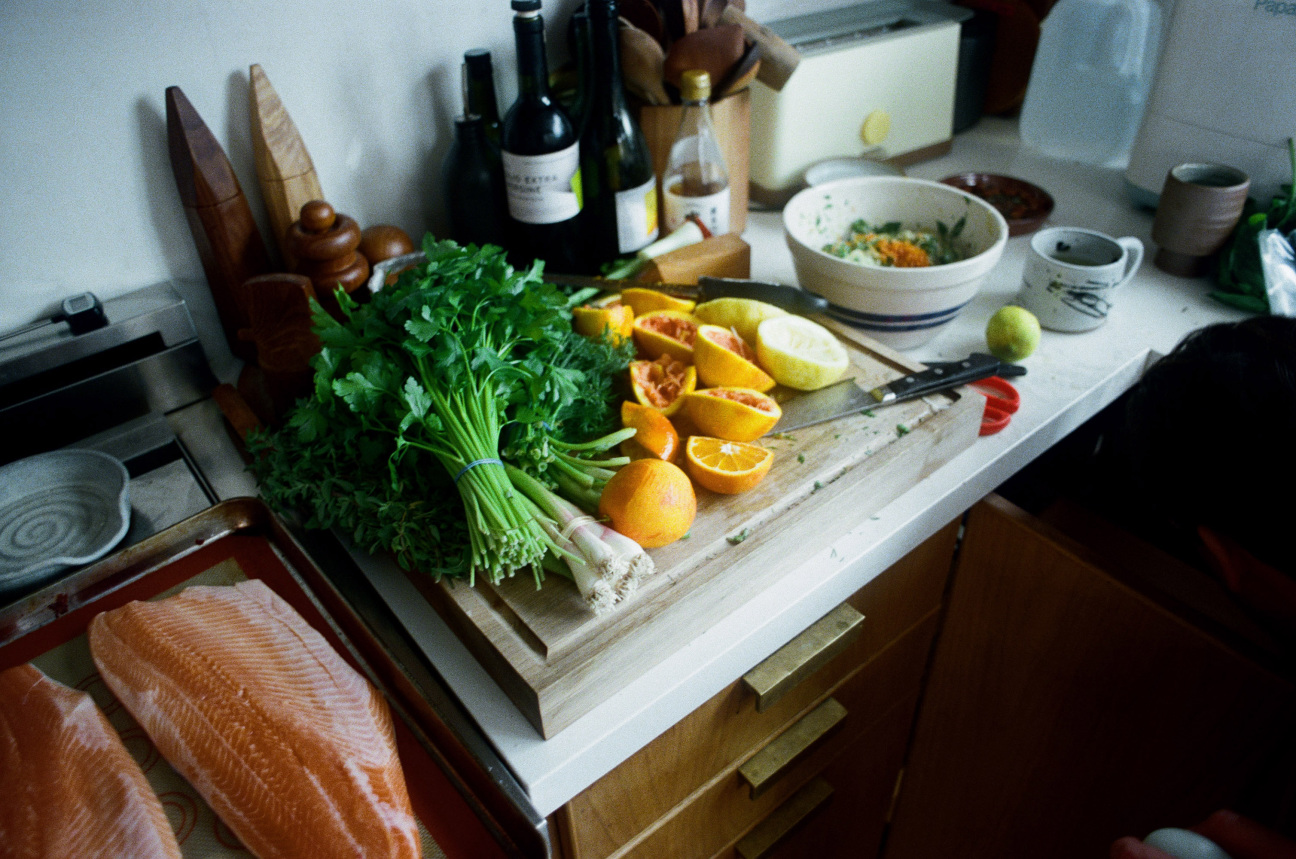
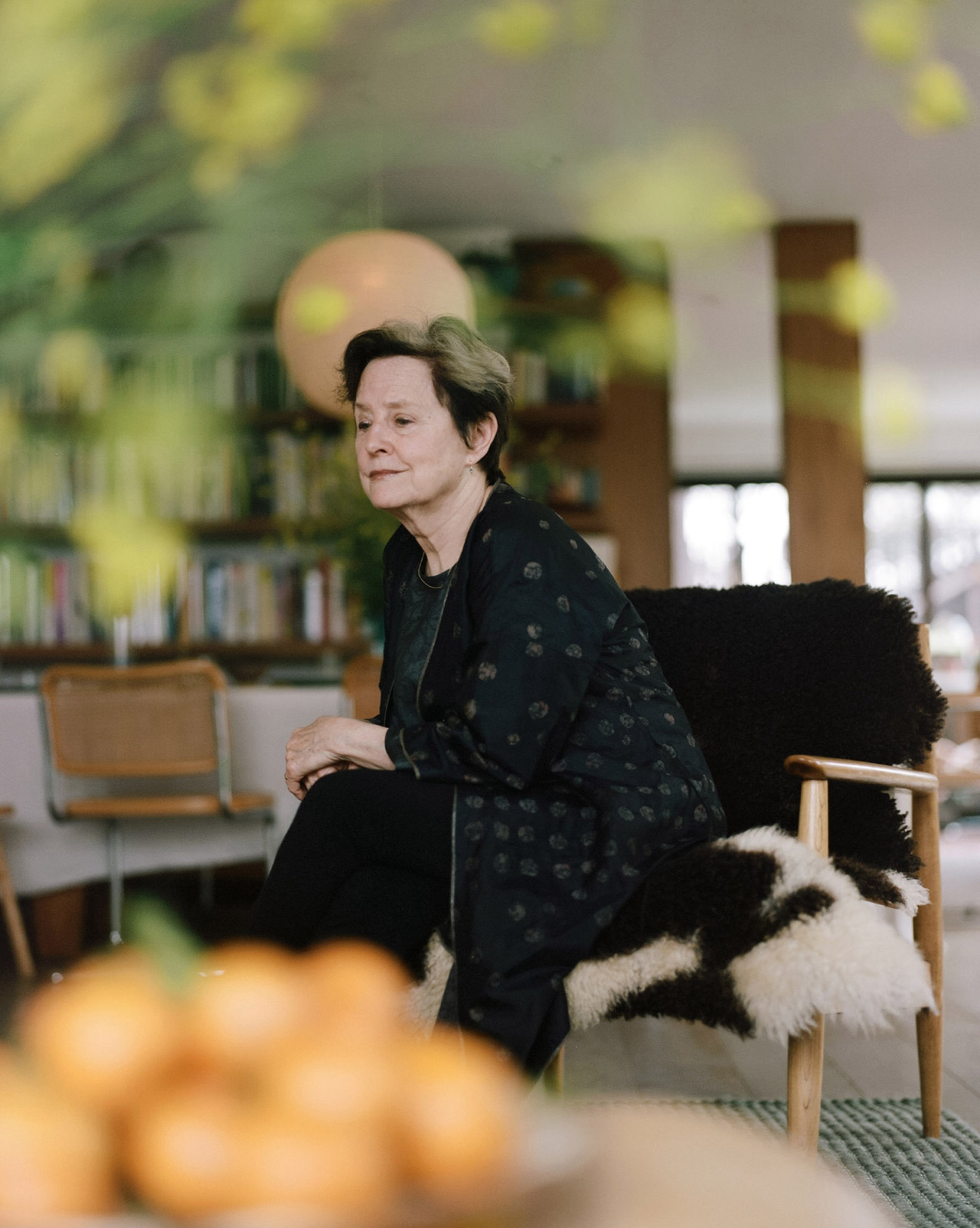
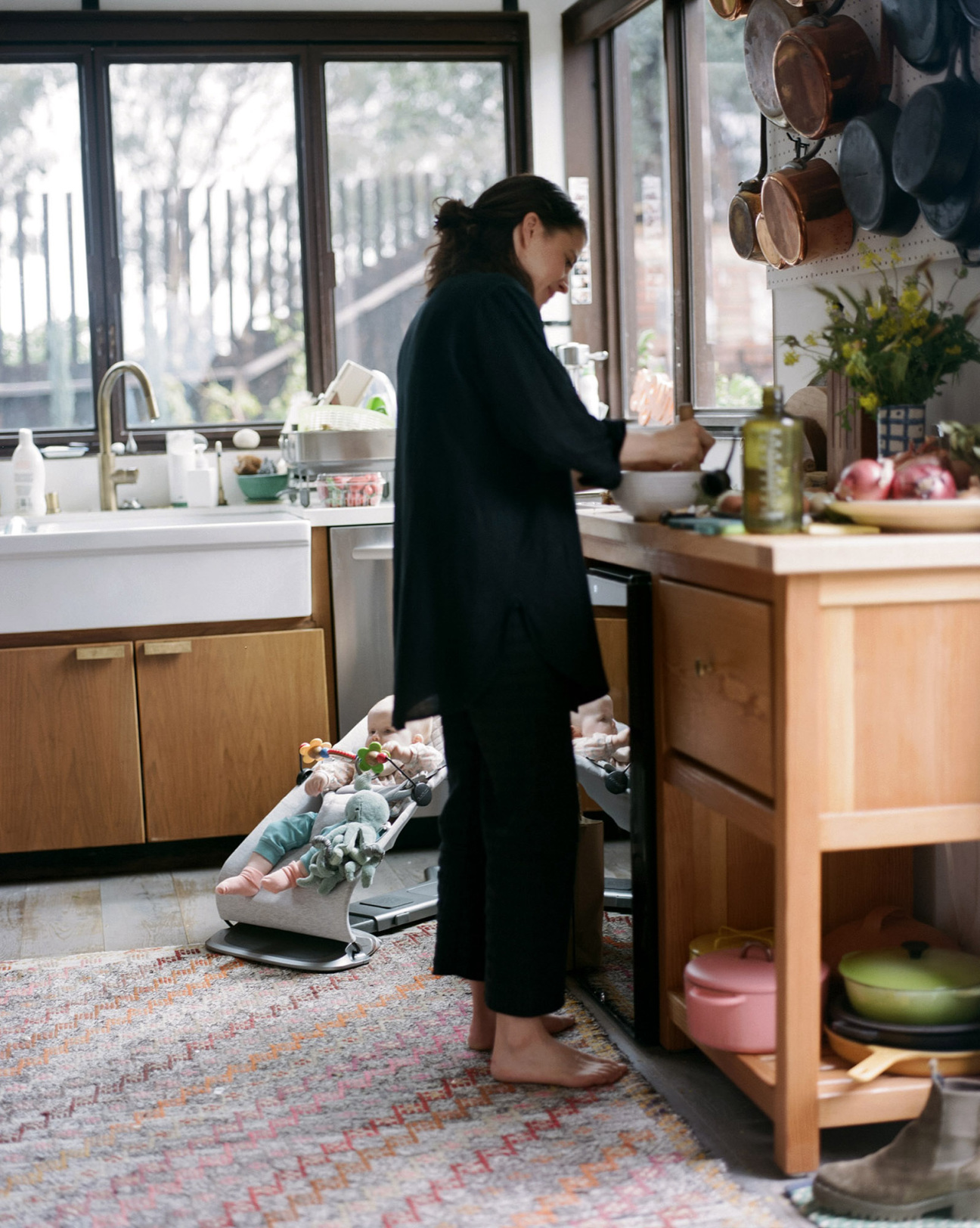
Food has always been a means of connection for Waters. After an eye-opening trip to France as a young woman, she returned to America with a philosophy of eating rooted in the earth and divorced from the pre-packaged meals and frozen dinners of her childhood. It was there that she devised the vision for Chez Panisse, her iconic and influential Berkeley restaurant that created the paradigm for “California cuisine”: farm-to-table, organic food that is simple and startlingly fresh. “I don’t know if I ever experienced that kind of beauty,” she recalls of that formative trip to France, “a beauty of the table, a beauty of the food that was in every market, these cute little restaurants. I fell in love. That’s what I wanted at Chez—I wanted it to feel like you were eating in somebody’s home.” So Waters created food that was seasonal and fresh and served it in a no-fuss setting: local flowers, real candles that leave a spatter of wax on the table, tablecloths and chairs from the flea market. She even learned calligraphy to write out the menus. “I never imagined that people wouldn’t like that,” she says. She has since bequeathed that same sensibility to Lulu, her restaurant in the courtyard of LA’s Hammer Museum that opened in 2021. “I do think it’s the only way to eat,” she says, “nearby and ripe.”
Look closely, and Waters’s family is everywhere in her work—starting with the network of food purveyors that have become the backbone of her business. “I was looking for taste, and I found that when I found the farmers,” she says, holding Cecily as she gnaws on a raw carrot. “And there’s no middleman.”
Through her culinary pursuits, she has cultivated a sense of kinship unbound by bloodlines or marriage. “Chez Panisse became a family because we hired our friends,” she says. “People always say don’t hire friends because you’ll never be able to get rid of them if they’re no good,” she smiles. “On the other hand, it makes work such a pleasure. I’ve had the greatest relationships over these 50 years.” As the restaurant enters its fifth decade, it has become, like any family, a multi-generational enterprise. “Now they’ve all had children, and they’re coming back to work for us,” she adds, “which is great because they’re already trained.”
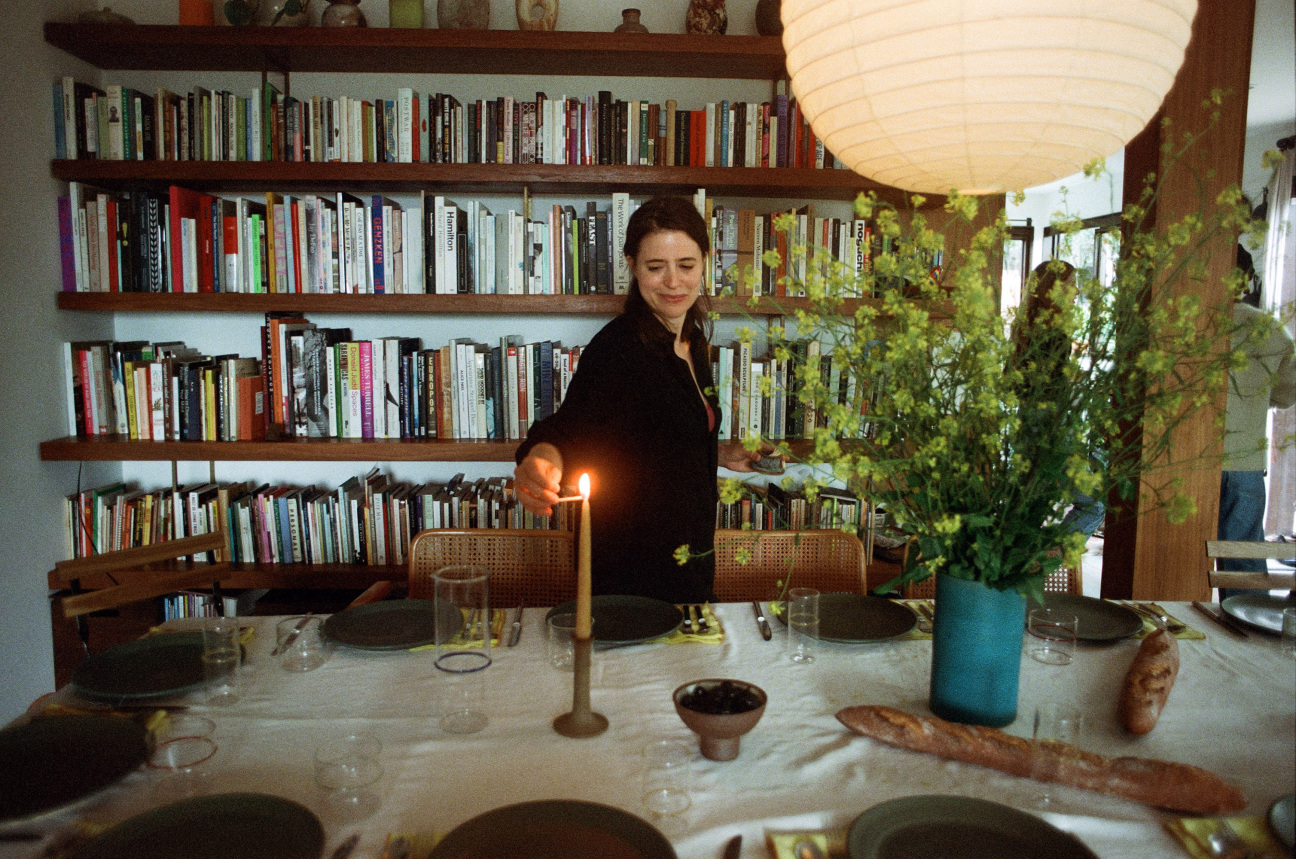
Waters’s focus on the next generation extends beyond her restaurant and into her nonprofit, the Edible Schoolyard Project, located in Berkeley, California. Founded in 1995 with the belief that food practices should play a vital role in public school education, the organization reframes common academic subjects—math and social sciences—through the lens of food, from farming to cooking to eating. The initiative marries Waters’s past lives as an educator (she was a Montessori school teacher before pivoting to cooking) and an activist (a child of the 1960s, she was active in anti-war and civil rights movements).
“Young people want to address the climate crisis. They understand that the food system is broken,” she says. “So if you’re studying the geography of the Middle East, you’ll be making pita bread and hummus. For math, you’ll be measuring, and stirring, and calculating, all of that. This has all been invaluable to me.” Bringing that sensory experience of food—one we engage with daily—to a classroom is a powerful way to bring these subjects to life.
“She’s always said that I was her proof of concept,” Singer laughs. She, of course, is an excellent example of her mother’s teachings. She recalls wandering through her yard as a child picking strawberries, raspberries, and snap peas. “It sounds so romantic, but it’s also practical,” Singer says. “If you have a garden, you build this treasure hunt for kids, and that makes them interested in being outdoors and exploring.”
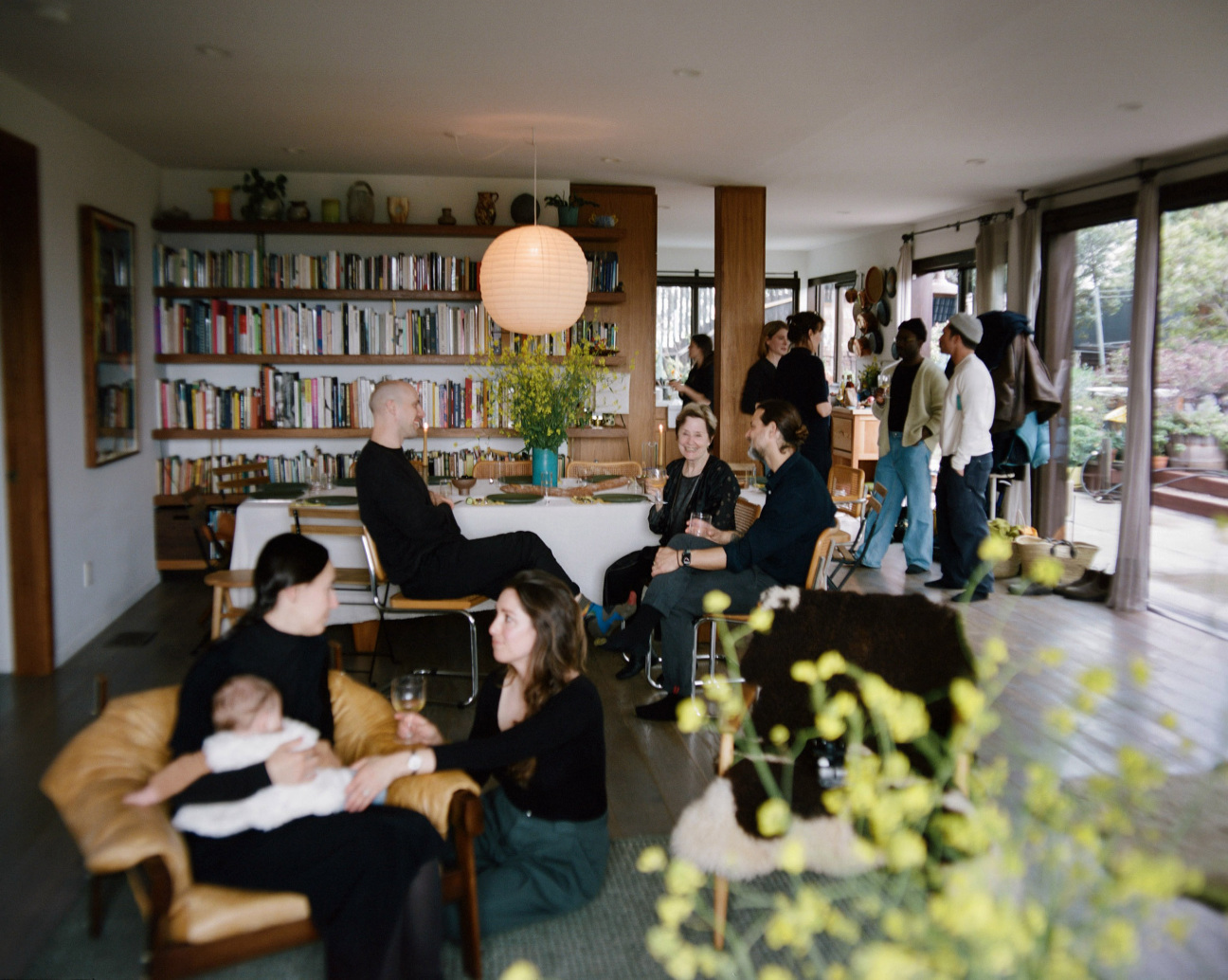
Similarly, Singer recalls summers spent in France with her mother’s close friend Lulu Peyraud—after whom Waters named her second restaurant—and her brood. Singer forged some of her most treasured memories in Peyraud’s rustic kitchen with its open fire and ruffled hearth curtains. “I would sit at that table and smell the garlic being mashed with a huge mortar and pestle and smell the vine cuttings,” she remembers. “It was a very sensory experience and something that influenced how I think about cooking—having people with you in the kitchen, touching and tasting things.”
Waters may be the chef, but on this rainy afternoon, it was her daughter manning the kitchen with her dear friend Heather Sperling, the pair moving in a choreographed dance of co-cooking. Sperling, a co-owner of Botanica, the cafe and restaurant in Silver Lake, was searing halved potatoes and checking on the opaque and fatty filets of steelhead trout that were slow-roasting in the oven. Singer, meanwhile, was preparing a salad of pink and slightly bitter chicories from Roots Organic Farm in Santa Ynez, tossed with thin slivers of radishes and tart orange kumquats. The two met through a mutual friend. “When I moved here,” Singer explains, “Heather instantly became family. She was the first person to meet my now-husband. She coached me through those early days of motherhood.”
Singer is certainly her mother’s daughter. A writer and occasional illustrator, she collaborated with Waters on a book titled My Pantry: Homemade Ingredients That Make Simple Meals Your Own in 2015. In 2020, she released Always Home: A Daughter’s Recipes & Stories, and she is currently working on another book about salads. Singer is also co-owner of the online home and kitchenware e-commerce site Permanent Collection, which features artisanal objects. “It’s all about good but functional design that helps support what you do in the kitchen,” she says.
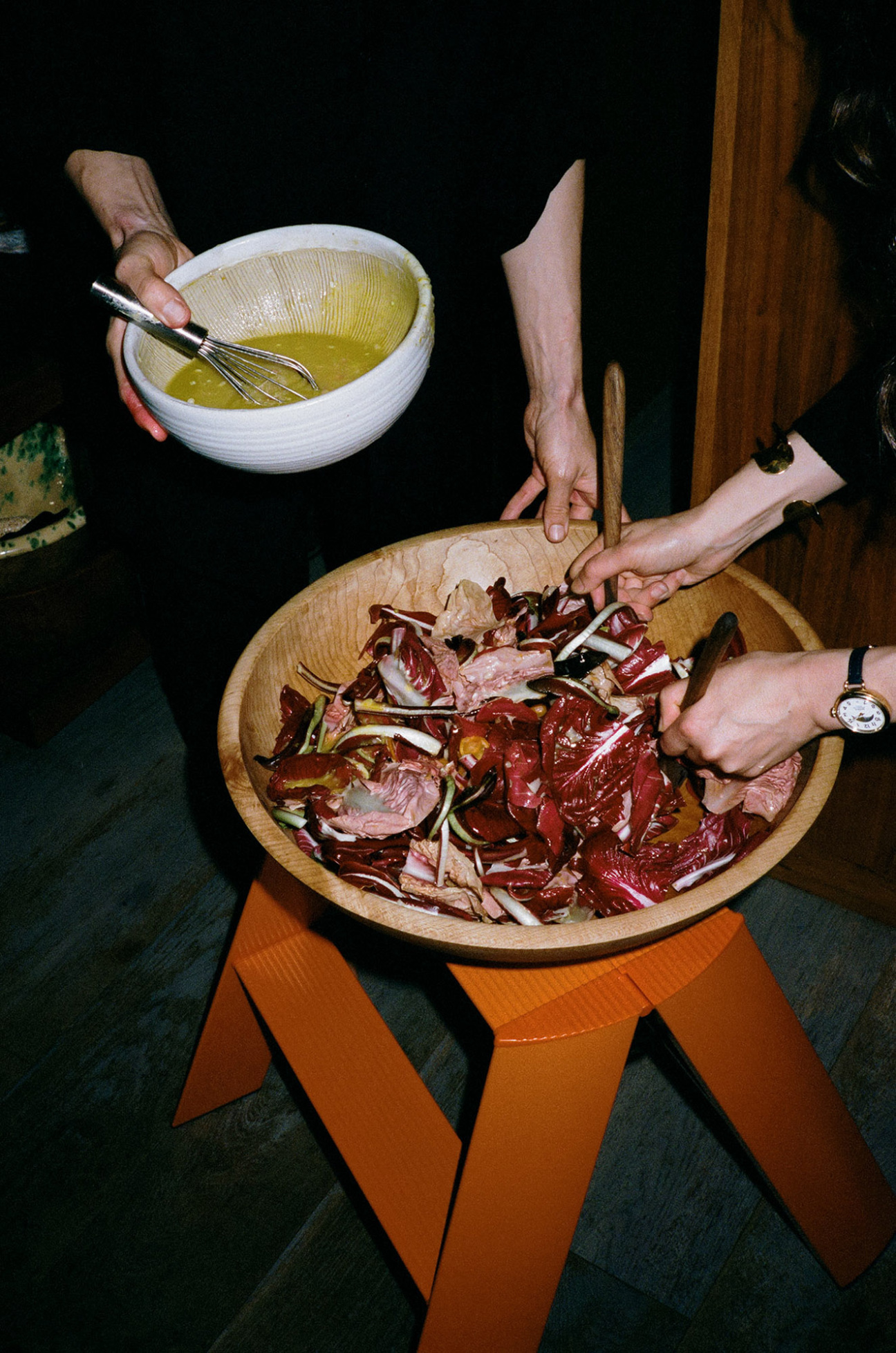
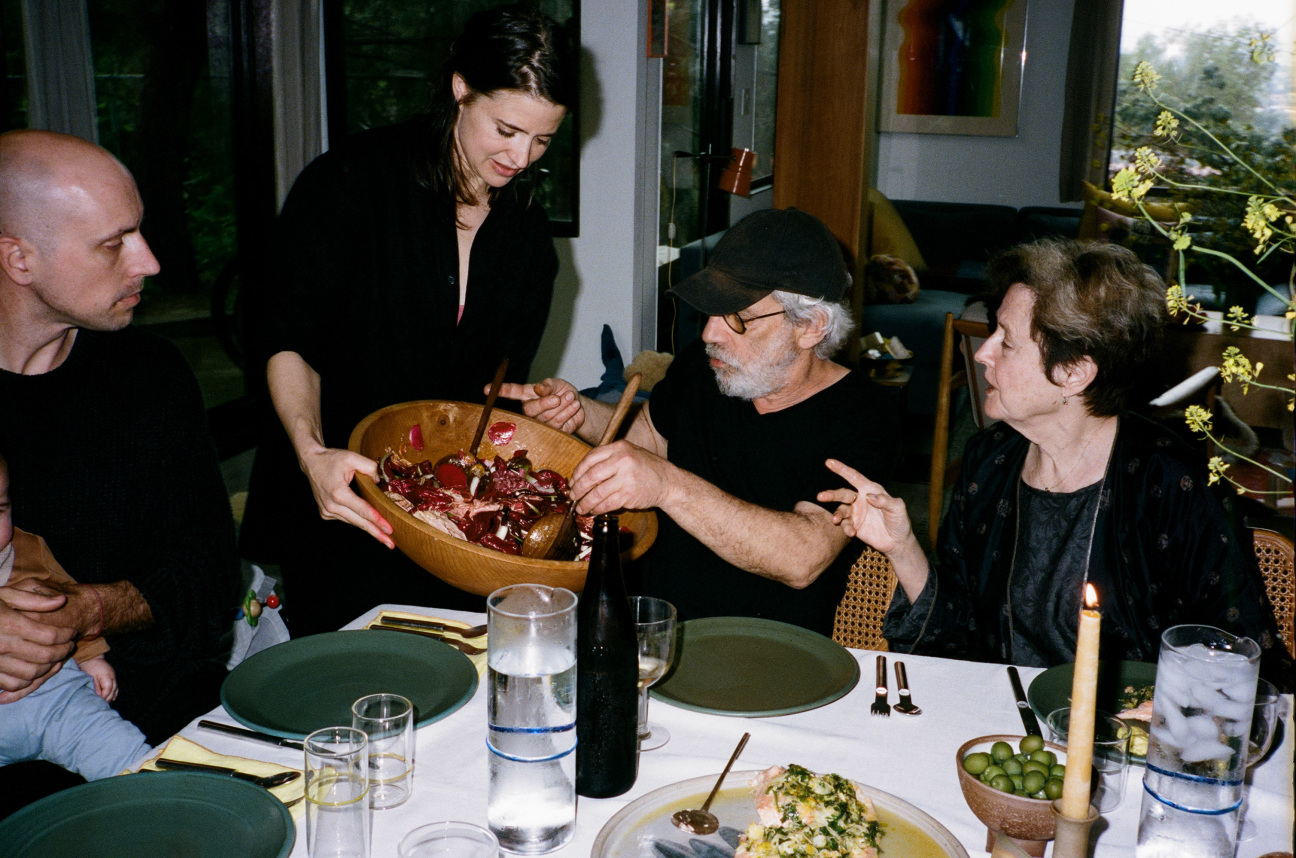
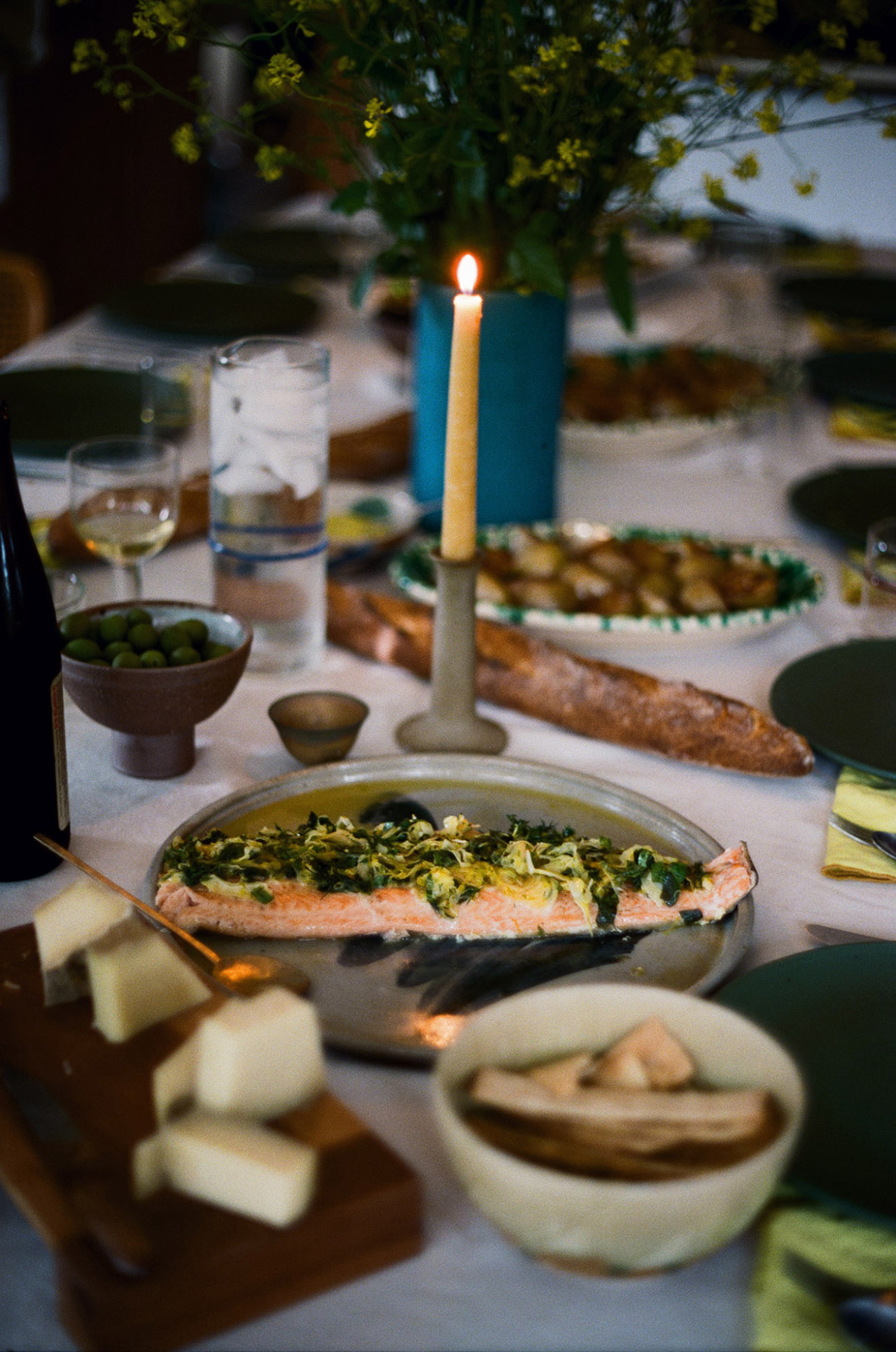

As the meal came together, so did a constellation of like-minded loved ones. There was Christina Kim, a longtime friend and designer of the sustainable clothing label Dosa, who perched on Waters’s seat and gave her a quick snuggle. Kim designed the subtly alluring dress and duster coat that the legendary chef was wearing. Her clothing is made from organic materials and recycled fabric waste, a fashionable iteration of Waters’s own farm-to-table kitchen methodologies. “I came here from Korea when I was 15. In the American school system, I had the chance to take horticulture and home economics,” Kim says. “I am who I am because of that education—being out there in the dirt.”
The cast of characters represented all walks of life: among them Waters’s longtime friend and Singer’s godmother, the comedian, writer, and producer Sue Murphy, tall and funny; David Tanis, the scruffy-faced chef and a partner at Lulu; and the novelist Emma Cline, with her piercing eyes. Singer welcomed her guests with a hug, dipping in and out of the kitchen and passing off Cecily to whomever was nearby and wanted to give her a squeeze. The moment recalled, in a way, the tableaux of Singer’s own childhood, when her mother knocked down the wall between their kitchen and dining room. “You could take something immediately off the grill and place it on the table,” Singer recalls. “I hesitate to call it dinner theater, because it wasn’t performative, but the experience of eating and the experience of cooking were one.”
They sat, chattering, as the food came to rest on green plates under the warm glow of a paper lantern. New friends and old friends joked and reached over one another to pass heaping dishes—a scene embodying what Singer says is her mother’s guiding principle: “there’s always room at the table.” Anyone who happened upon this gathering of tender-hearted acquaintances happily eating and sharing stories would be forgiven for mistaking it for a rag-tag family reunion.

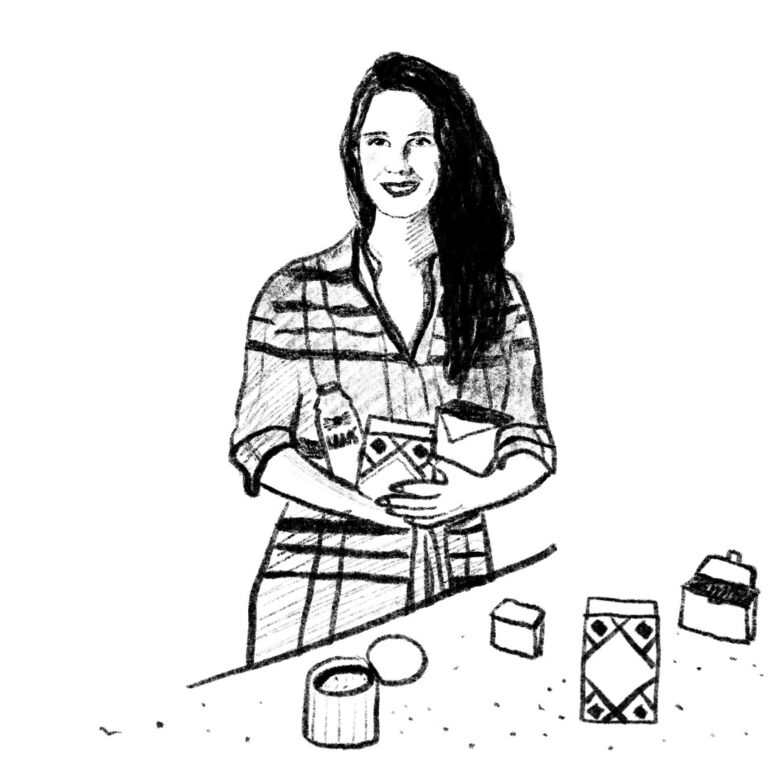
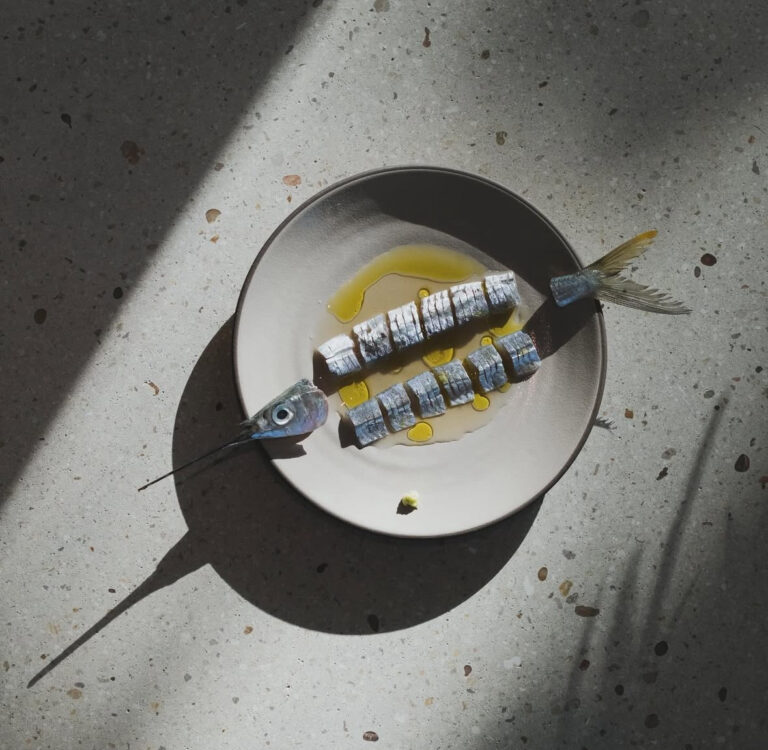
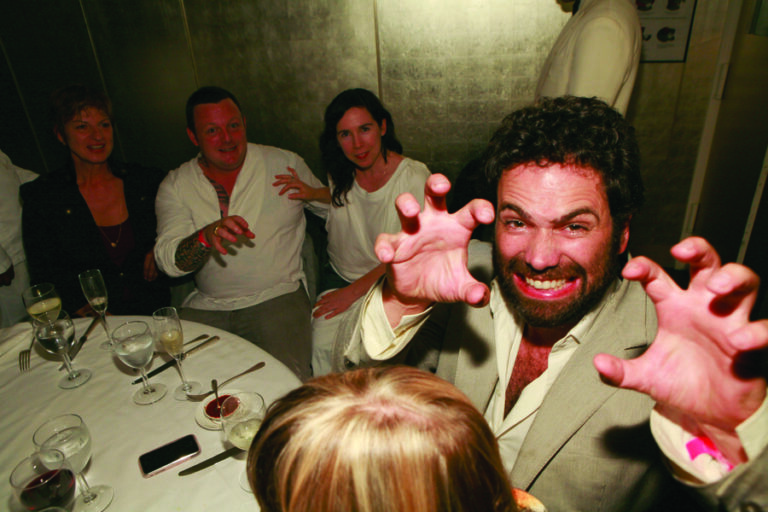
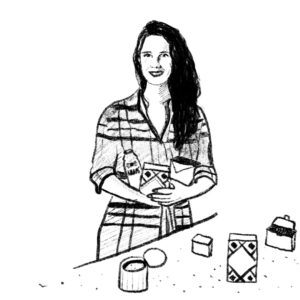
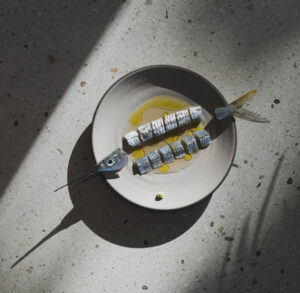




 in your life?
in your life?

